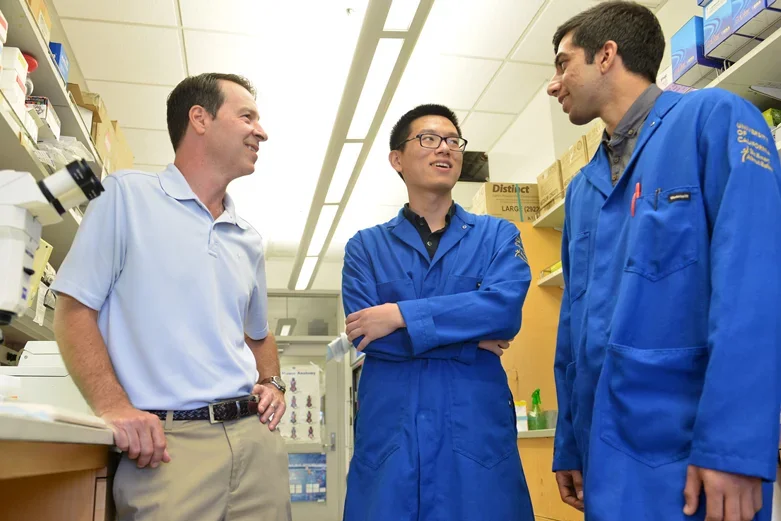Genes and Metabolic Disorders
Understanding Metabolism And Metabolic Disorders
Lipid Metabolism
Some UCLA researchers focus on manipulating the performance of mitochondria (the cell’s energy-burning engine) and other cell structures. Meanwhile, their scientific colleagues are taking a genetic approach to understanding metabolism and metabolic disorders.
Peter Tontonoz, MD, PhD, a professor of pathology and laboratory medicine and biological chemistry, studies pathways regulating energy storage and expenditure that contribute to obesity and Type 2 diabetes. His group aims to dissect the molecular function of new proteins involve in lipid metabolism.
Lipids include triglycerides, phospholipids and sterols. Lipid metabolism involves aspects of lipid uptake from the diet, conversion to other molecules such as hormones, storage in fat cells, and catabolism or excretion.
Liver X receptors and metabolic disorders

Tontonoz studies how genes are regulated in response to lipid metabolism. He has researched ways to slow the process of metabolism or speed it up.
He and his colleagues have identified enzymes called liver X receptors (LXRs) that are master regulators of cholesterol, fat and inflammatory gene expression. LXRs regulate fatty acid and cholesterol metabolism in many tissues, including liver, fat and brain. Gain or loss of LXR activity influences the development or progression of several metabolic disorders, including atherosclerosis, fatty liver disease, and Alzheimer’s.
The promise of LXRs in treating disease
The LXRs are ligand-activated transcription factors that are normally turned on by cholesterol derivatives. This has opened the door to the possibility of developing LXR activators or inhibitors for clinical use.
When stimulated, LXRs "turn on" several hundred genes that hold instructions to create proteins for carrying out bodily processes in cells, from transporting and excreting cholesterol to synthesizing fat in the liver. Evidence also shows that LXRs suppress inflammatory processes in several contexts.
In mice, compounds that turn on the receptors have been shown to lower cholesterol levels in blood and liver tissues, effectively treating:
- Diabetes
- Atherosclerosis
- Alzheimer’s disease
- Inflammation
“ ”
